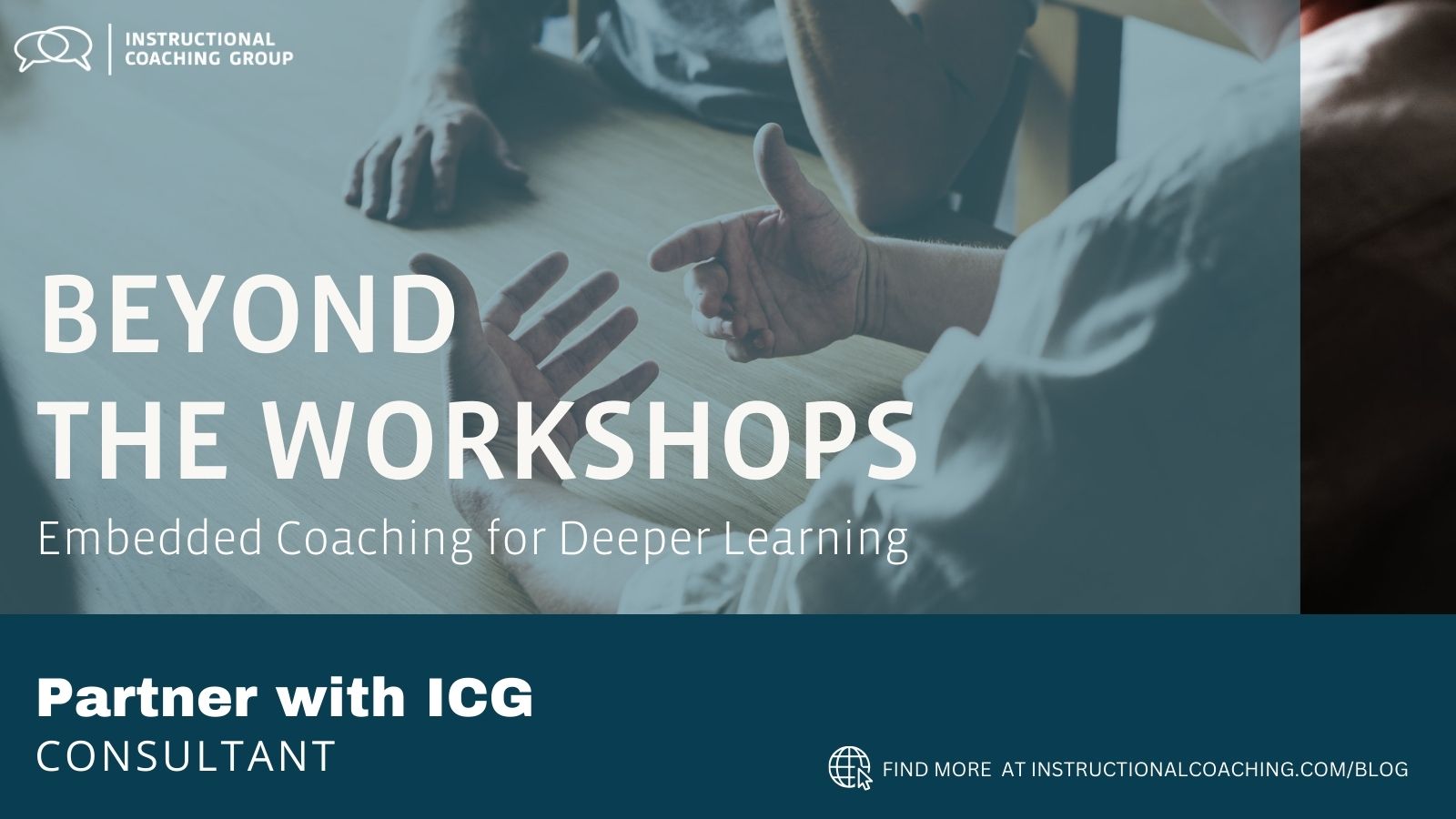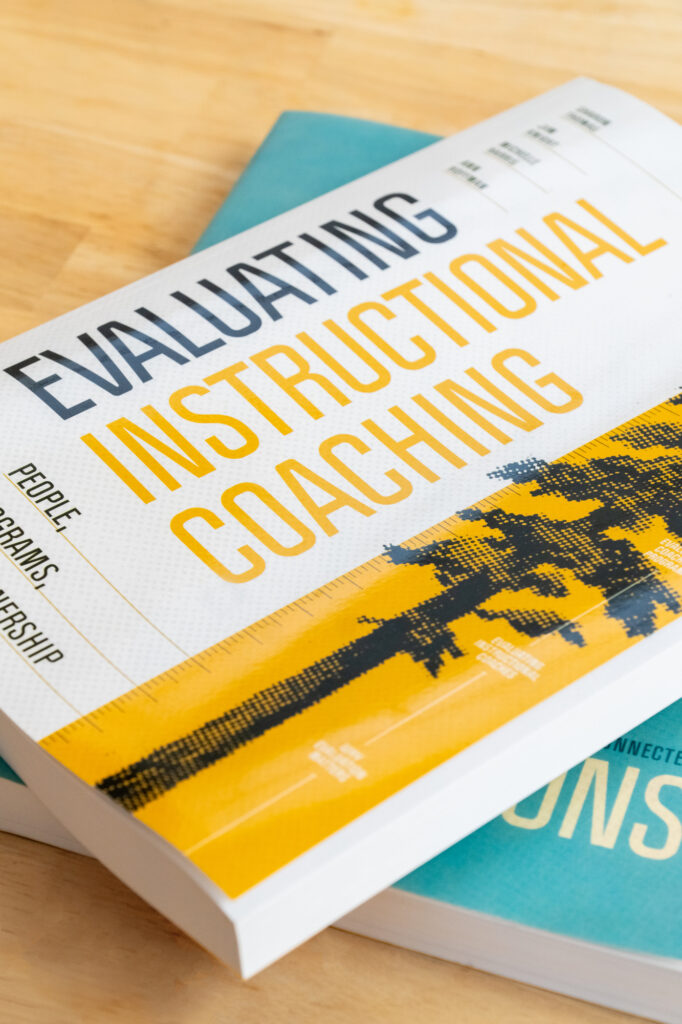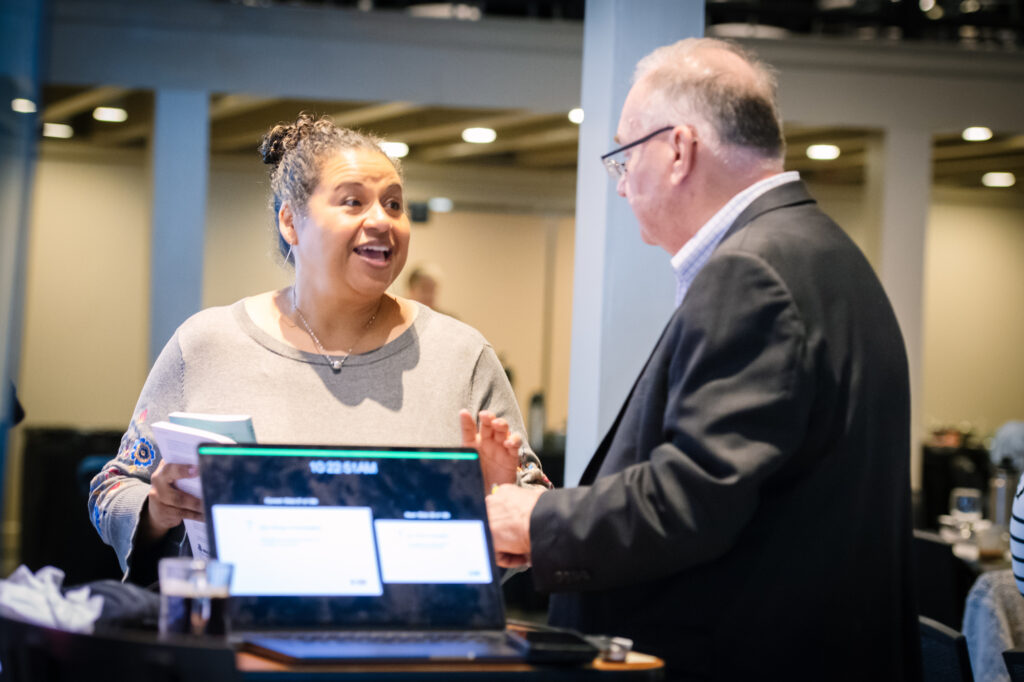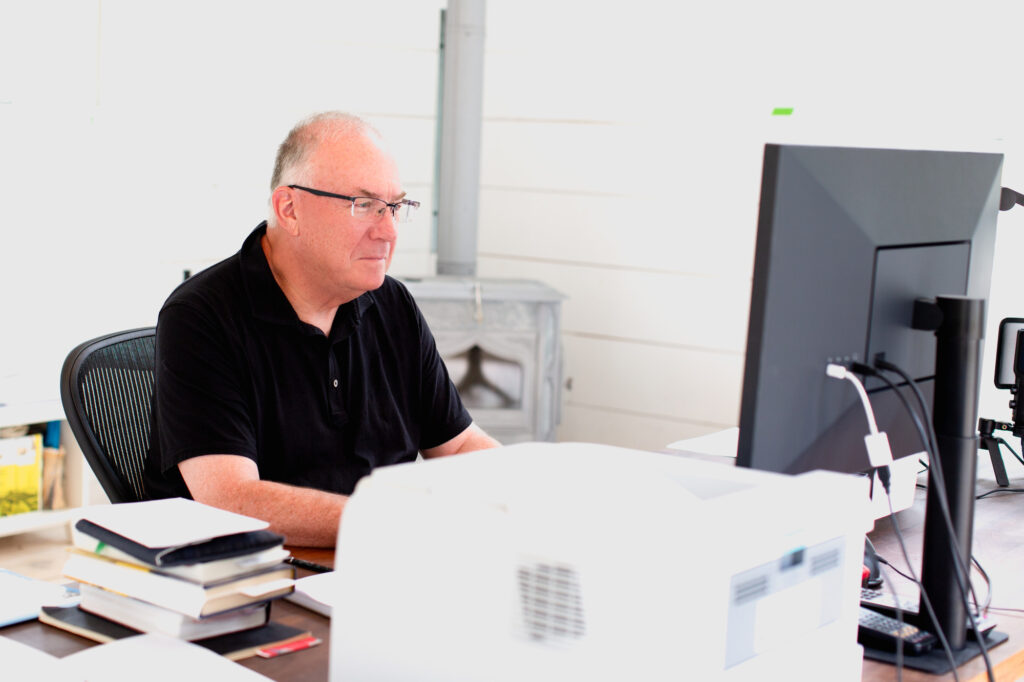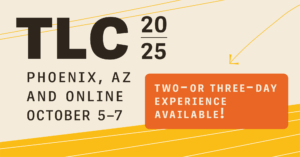After any professional development workshop, the most common questions concern follow-up. Workshops are incredibly valuable to convey foundational knowledge for new professional learning. At ICG, we want to ensure that our workshops are clear, engaging, grounded in partnership, and ever improving. Those workshops are critical in explaining our coaching model, the 20+ years of research behind it, and the benefits and challenges that arise when implementing it.
But workshops alone are not enough. Workshops are often both the first and final step in professional development for educators because schools rarely have enough time and resources to do everything they need to do to move students forward. As a result, even though most educators know that “one and done” professional development workshops don’t bring about real change, schools often feel like they can’t provide necessary follow-up. They hope that “one and done” may work this time.
ICG has examined the effectiveness and accessibility of many forms of follow-up after workshops, and Jim Knight sees embedded coaching as one of the key elements in how deeply a district implements the Impact Cycle, the central coaching model of ICG. Just as teachers benefit from instructional coaching to make meaningful instructional changes, coaches need coaching, too.

What Is Embedded Coaching?
Several years ago, Senior Consultants Ann Hoffman and Michelle Harris began providing follow-up for our workshops in the form of “embedded coaching” days. These follow-up days provide embedded professional learning on the spot in school buildings, with real coaches, teachers, and administrators. Agendas are determined by the school or district and based on the needs of their coaches in implementing the Impact Cycle coaching model. Because no two school districts, or even two school buildings have the same needs, the agenda items vary on embedded coaching days. Schools or districts typically (but not always)request activities that fall into any of four categories:
- “Live” coaching
- Examining specific Impact Cycles and troubleshooting issues
- Meeting with school and/or district leaders
- Watching and examining coaching video as a group
Building a connection between workshop and classroom results in a much deeper implementation of the coaching model, improved instruction, and improved student learning.
Fostering Partnership in Embedded Coaching
Our company, like our coaching model, is grounded in partnership, so words like“feedback” and “giving direction” tend to raise the hairs on the backs of our necks. To ensure that coaches know that embedded coaching days are about their self-identified needs, and not about consultants providing feedback or giving direction, we encourage an environment that involves the Partnership Principles.
In situations where coaches genuinely want feedback on their coaching, we work collaboratively to ensure a partnership approach that:
- Focuses on one small group of coaches at a time
- Establishes a structure for the communication (our Listening and Questioning Checklist can help to establish communication norms)
- Creates a welcoming environment where teachers participate voluntarily and understand the live coaching process
- Considers the pros and cons of asking administrators to participate (embedded coaching days should not be evaluative and should not feel evaluative to coaches)
Based on the seventh Partnership Principle, Reciprocity, our involvement in real coaching interactions in schools helps us to hone our own coaching skills as well. Those authentic conversations remind us how coaches can feel in difficult conversations about student progress and goal-setting, and provides us with a greater understanding for future conversations. Embedded coaching helps us understand the challenging circumstances coaches face in terms of time, resources, teacher resistance, and system support.
What We’ve Learned from Embedded Coaching
Through this work with individual coaches, we gain a better sense of coaches’ understanding of the coaching model and system support for it. This awareness helps us navigate conversations about further follow-up, and helps us identify misconceptions that should be addressed as an organization. Once coaches have a foundational understanding of the Impact Cycle, embedded coaching is the next logical step for coaching programs.
For an expanded look at the points discussed in this post, visit our webpage, Embedded Coaching for Deeper Learning.
